Top 10 Keyword Research Tools

In competitive digital market, understanding what your audience is seeking is of critical essence in order to succeed on the internet in the year 2018. Keyword research instruments are also the key to a successful SEO strategy since they inform the business about what phrases to employ to create high-value organic traffic.
These powerful tools provide an idea about the search demand, competition, and user intent, so as to assist marketers in writing the content that will suit the target audience. Every time you choose keyword research tools (because that is a choice you make), whether you are an experienced SEO professional or new in the field of digital marketing, it can have a significant effect on the visibility and growth of your website.
What is Keyword Research?
Keyword research is the methodological search of words when searching the internet, as well as the analysis of these words that people insert in the search engines, asking for information, products, or services.
This is a core SEO strategy that entails the proper selection of keywords, keyword search volume, estimation of competing websites, and intentions of users per query. The tools to conduct effective keyword research make it easier to simplify the process using highly informative information on search trends, popular issues at the moment, and competition. Using advanced keyword research tools further enhances accuracy and helps marketers discover the best opportunities for growth.
These insights can be used by businesses to optimize their content strategy, boost search engine rankings and acquire qualified traffic that results in leads and customers.
Why Keyword Research Tools Are Important?
One of the most essential factors in every successful digital marketing campaign is the proper analyzing of keywords. These tailored platforms offer data-based advice that makes guesswork part of your strategic decisions and that leaves your online presence and profit optimization a success.
- Traffic Generation: Quality keyword research tools are useful in determining high traffic-generating search terms that can bring huge organic traffic to your site.
- Competition Analysis: These sites will tell you what strategies competitors are using as to which keywords they rank high in, and what gaps you can fill in the market.
- Content Strategy: Keyword research tools help when creating the content as they provide informed into what is searched and liked by the audience.
- Optimization of ROI: These keyword research tools aid in optimizing your marketing budget by targeting the right keywords, boosting conversion rates by a significant margin.
- Trend Identification: Advanced platforms monitor the trend of keywords over a long period that enabling you to predict market changes and seasonal changes proficiently.
Limitations to Look for in Keyword Research Tools
Although keyword research tools provide extreme value, awareness of the possible limitations of such tools will guide you to make informed choices and have realistic expectations with your SEO campaigns.
- Accuracy of Data: Accurate search volume data can be outdated or incorrect in some keyword research tools, which can cause misinformed strategy decisions.
- Barriers to Cost: Imposing a high cost of the premium platforms restricts the ability of small businesses to access superior channels and exhaustive databases. Affordable keyword research tools can help bridge this gap and provide valuable insights.
- Complexity of Learning: Some tools have a high learning curve; thus, a lot of time is taken in learning how to navigate the feeds of the tools and derive the correct interpretation of data to achieve the best outcomes.
- Narrow Focus: Some platforms are too search engine-centred (i.e., Google), and may miss out on opportunities on other search engines and social networks.
- Regularity of Updates: Other instruments fail to update their databases promptly, and therefore, suggest outdated keywords and miss out on some of the trending data. Reliable keyword research tools help overcome this issue by providing up-to-date insights.
Comparison Table for Keyword Research Tools
| Tool Name | Rating | Best Feature |
| Ahrefs | 4.8/5 | Comprehensive backlink analysis and keyword tracking |
| Google Trends | 4.5/5 | Real-time search trend visualization and historical data |
| Semrush | 4.7/5 | All-in-one digital marketing suite with extensive features |
| Ubersuggest | 4.3/5 | Affordable pricing with comprehensive keyword suggestions |
| Keywords Everywhere | 4.2/5 | Browser extension providing instant keyword data |
| Moz Keyword Explorer | 4.4/5 | Accurate keyword difficulty scoring and SERP analysis |
| Google Search Console | 4.6/5 | Direct performance data from your website’s search traffic |
| AnswerThePublic | 4.1/5 | Visual question-based keyword discovery and user intent |
| Google Keyword Planner | 4.0/5 | Free access to Google’s official search volume data |
| SpyFu | 4.2/5 | Historical competitor PPC and SEO strategy analysis |
Top 10 Keyword Research Tools
1. Ahrefs – Best SEO Toolkit for Professionals
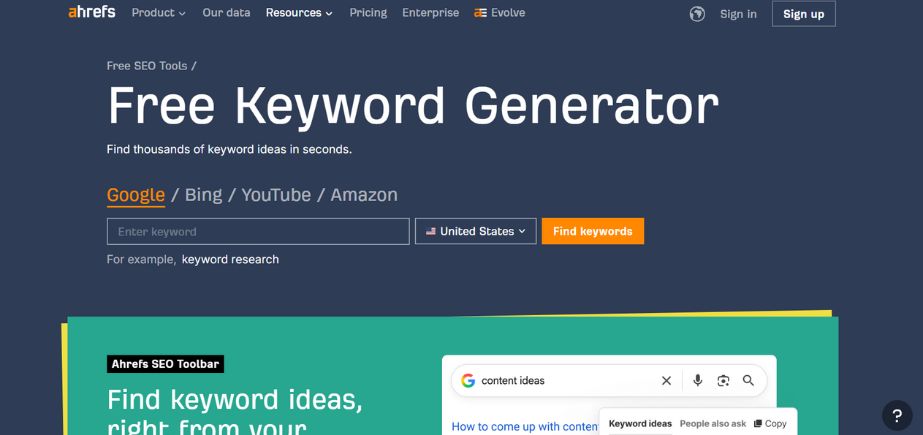
Rating: 4.8/5
Website: https://ahrefs.com
Best Use Cases: Professional SEO analysis, competitor research, comprehensive keyword tracking
Ahrefs have become one of the most authoritative platforms in the SEO field that can be used by professional digital marketers and agencies, and have many functions at hand. This is a great tool that not only has strong keyword research tools but also strong link-based analysis tools, making it an essential part of a complete SEO approach.
Its hugely expansive database of billions of keywords across search engines and countries offers in-depth information about search volume, keyword difficultyyand traffic potential to the user. Ahrefs also performs well in competitor analysis, showing users what the competitors are doing best as well as where the gaps in their content lie.
The traffic potential measurement on the tool can provide detailed information to the user concerning the real value of the keyword rank that is not provided by the measure of search volumes only.
Key Features:
- Extensive keyword database
- Advanced backlink analysis
- Competitor content research
- Site audit capabilities
- Rank tracking system
Pros:
- Highly accurate data
- Comprehensive SEO toolkit
- Excellent user interface
Cons:
- Expensive pricing structure
- Credit-based system limitations
- Steep learning curve
Pricing: $129 /mo
2. Google Trends – Best for Tracking Popularity
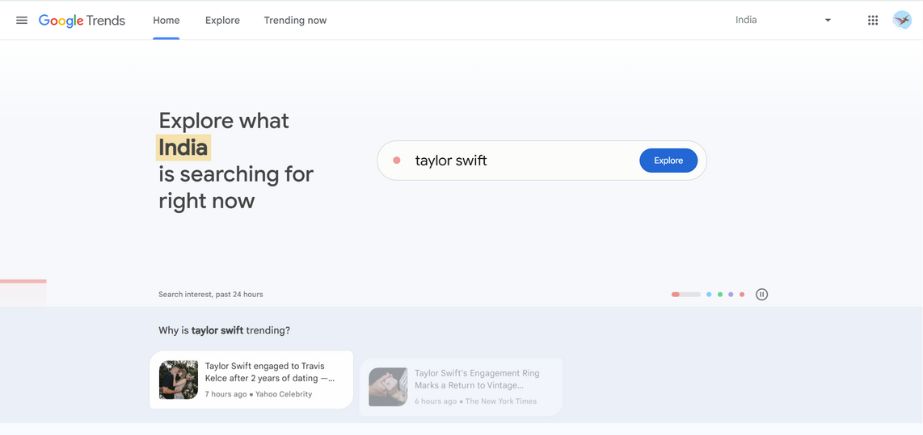
Rating: 4.5/5
Website: https://trends.google.com
Best Use Cases: Trend analysis, seasonal patterns, real-time search insights
Google Trends has offered unparalleled access to real-time search, records in the mammoth Google database and face of search behaviour tracking. This free tool is very proficient at showing seasonal trends, geographically preferred search, and emerging topics, which could be used to determine content strategy. When combined with other keyword research tools, it becomes even more powerful for SEO planning.
As opposed to other forms of keyword research, Google Trends tends to concentrate on how relative search interests change, assisting the user to realize when the search interests on a certain topic increase or have declined.
A varied comparison of several keywords at a time helps to gain information that will be useful when planning and timing content on the platform. Its combination with the Google ecosystem provides accuracy and reliability of the data, but with less depth of such values than in expensive tools.
Key Features:
- Real-time trend data
- Historical search patterns
- Geographic insights
- Keyword comparison tools
- Related query suggestions
Pros:
- Completely free access
- Real-time data updates
- Easy interface navigation
Cons:
- No search volumes
- Limited keyword metrics
- Basic functionality only
Pricing: Free
3. Semrush – Best All-in-One Solution
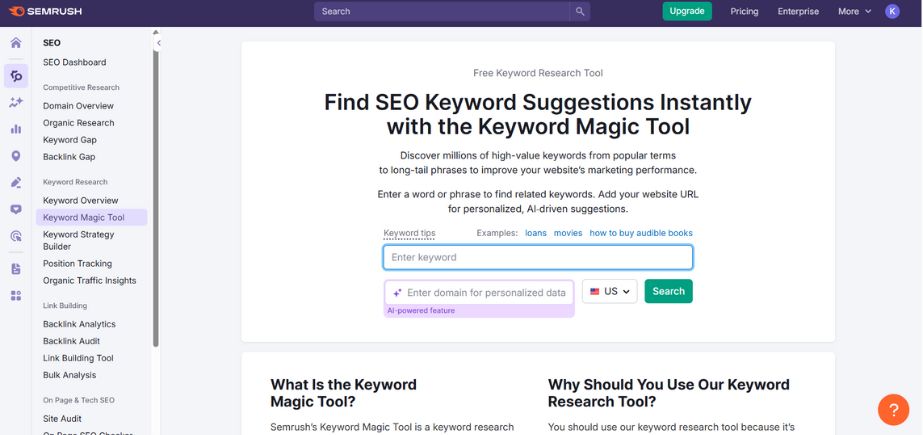
Rating: 4.7/5
Website: https://semrush.com
Best Use Cases: Comprehensive digital marketing, PPC campaigns, enterprise SEO management
Semrush is a true masterpiece of consumer-facing integrated digital marketing tools, incorporating a whole range of powerful keyword research features with advertising intelligence, social media management, and content optimization capabilities. The all-in-one suite is attractive to agencies and large companies that need a platform with various marketing capabilities in one.
The keyword research tool not only provides simple metrics analysis, but it also includes more advanced tools such as keyword clustering, tracking SERP features, and intent-based keyword grouping. The competitive intelligence available through Semrush offers a detailed insight into the paid and organic strategies of competitors, so that users can find a vacant niche in which they can make profits by choosing one of these two strategies.
This is because of the frequent updates and addition of new features to the platform, which keep users abreast with any changes in the industry and the updates in algorithms. Like many keyword research tools, it evolves continuously to deliver accurate and relevant insights.
Key Features:
- Integrated marketing suite
- Advanced keyword clustering
- Competitive intelligence tools
- Content optimization features
- Social media management
Pros:
- Complete marketing solution
- Regular feature updates
- Extensive database coverage
Cons:
- High subscription costs
- Complex interface navigation
- Overwhelming feature set
Pricing: $117.33/mo
4. Ubersuggest – Best Budget-Friendly Option
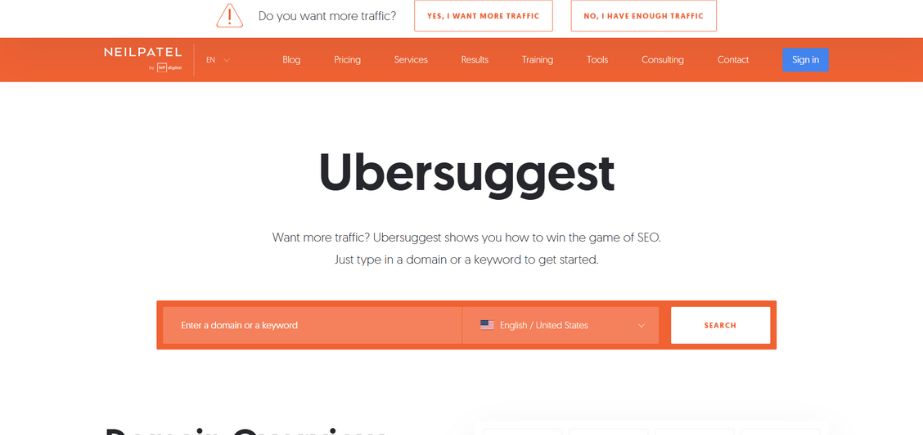
Rating: 4.3/5
Website: https://neilpatel.com/ubersuggest
Best Use Cases: Small business SEO, budget-conscious marketers, beginner-friendly keyword research
Ubersuggest makes advanced keyword research tools by providing feature-packed features at reasonable prices. It is the brainchild of a well-known marketer, Neil Patel, and this platform helps in suggesting comprehensive keyword and content ideas as well as rudimentary competitor analysis without taking up the budget.
The tool is most useful when it comes to creating long-tail keyword variations and giving actionable tips on the content to write that has worked on competitor sites. A simple interface makes Ubersuggest especially attractive to novice users who may find it confusing to use other, more complex websites.
It might not have all the advanced capabilities of the most expensive products but it offers outstanding value when it comes to small businesses and solo marketers who want consistent accuracy in keyword information. Compared to other keyword research tools, it stands out for its affordability and reliability. It might not have all the advanced capabilities of the most expensive products but it offers outstanding value when it comes to small businesses and solo marketers who want consistent accuracy in keyword information.
Key Features:
- Comprehensive keyword suggestions
- Content idea generation
- Basic competitor analysis
- Site audit functionality
- Affordable premium pricing
Pros:
- Budget-friendly pricing options
- User-friendly interface design
- Good beginner features
Cons:
- Limited advanced features
- Smaller keyword database
- Basic reporting capabilities
Pricing: US$10.42/month
5. Keywords Everywhere – Best Browser Extension
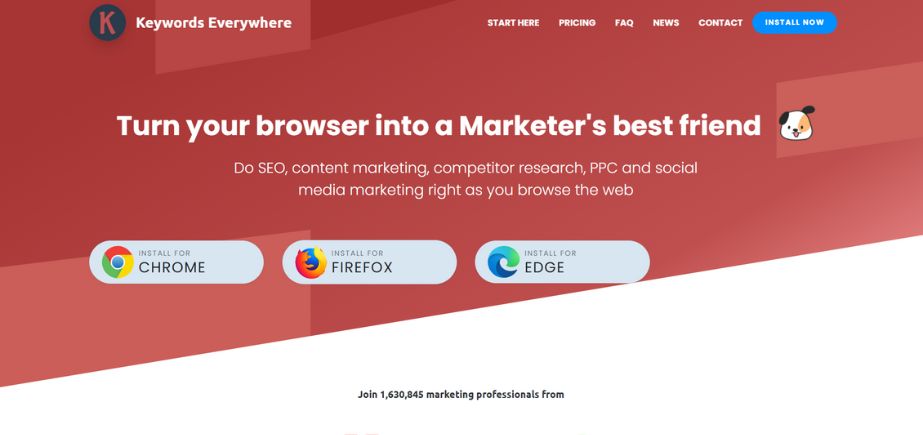
Rating: 4.2/5
Website: https://keywordseverywhere.com
Best Use Cases: Quick keyword insights, browser-based research, cost-effective data access
Keywords Everywhere transforms your keyword research game by bringing your data to the browser with a sleek to use browser extension. This is the special technique of showing search volume, competition information, and keywords associated with popular sites such as YouTube or Amazon, and other sites of search engines.
The affordable credit pricing model that the tool uses makes professional keyword data affordable to businesses of any size. Browsing the internet, the user will be able to receive useful keyword indicators without alternating between various platforms or applications. Many keyword research tools also follow similar models to make insights more accessible.
Such a smooth integration will simplify the research process and allow you to find opportunities in real time, whilst conducting competitor research or when researching content.
Key Features:
- Browser extension integration
- Multi-platform data display
- Credit-based pricing system
- Related keyword suggestions
- Search volume metrics
Pros:
- Extremely affordable pricing
- Seamless browser integration
- Multi-platform compatibility
Cons:
- Limited advanced features
- Browser dependency requirements
- Credit usage limitations
Pricing: $72 billed annually
Suggested blogs to optimize SEO:
1. Free Infographic Submission Sites to Boost SEO
2. Blog Submission Sites for Maximum SEO Benefits
6. Moz Keyword Explorer – Best for Difficulty Assessment
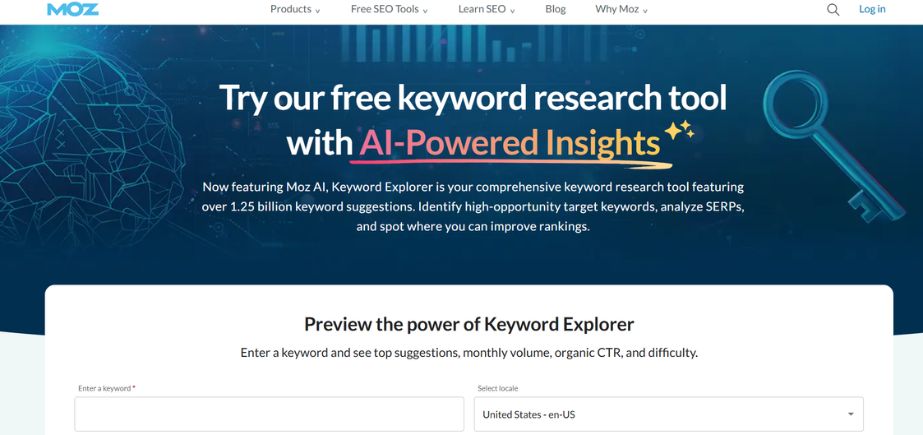
Rating: 4.4/5
Website: https://moz.com/explorer
Best Use Cases: Keyword difficulty analysis, SERP research, comprehensive SEO campaigns
Moz Keyword Explorer also stands out as the one with a highly complex algorithm in the difficulty score of keywords as well as complete SERP analysis capability. The platform offers such exclusive indicators as the Opportunity Score, which allows users to determine which keywords have the greatest chances of ranking success.
The character of the keyword research by Moz is not in the amount of information, but it is in the business insights that can be acted upon. The seamless way the tool integrates with an expanding suite of Moz SEO tools opens up the domain authority score system, the link analysis, and the site auditor functions.
The holistic strategy renders it especially useful to SEO experts who require trusted information to base their strategies and client reporting. Combining it with keyword research tools further enhances the depth and accuracy of insights.
Key Features:
- Advanced difficulty scoring
- Opportunity score metrics
- SERP analysis tools
- Domain authority integration
- Comprehensive SEO suite
Pros:
- Accurate difficulty assessment
- Quality metric focus
- Professional reporting features
Cons:
- Higher pricing tiers
- Limited keyword volume
- Complex metric interpretation
Pricing: $ 49 USD / mo
7. Google Search Console – Best for Performance Monitoring
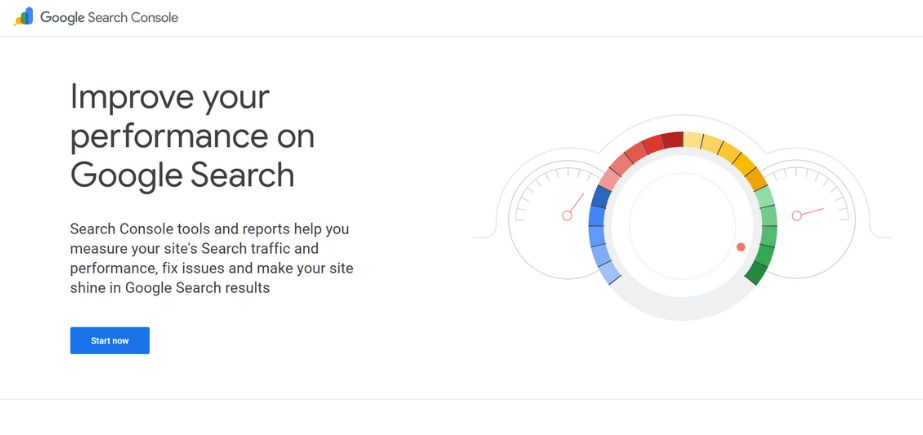
Rating: 4.6/5
Website: https://search.google.com/search-console
Best Use Cases: Website performance monitoring, existing ranking analysis, organic traffic optimization
Google Search Console offers unique data about how your site appears in search results, giving you data straight out of Google’s search algorithm. This free tool helps to identify what keywords are bringing traffic to your site, the number of clicks they get, and where they are located in search subdivisions.
Search console presents actual data on the performance of your particular website, as opposed to the derived information that other keyword research tools might offer. The platform assists in terms of finding opportunities to better rank or new keyword opportunities in terms of queries, in which your site is represented, yet not in the highest ranking position.
Although it does not offer some of the more traditional keyword research tools, its performance data is invaluable when optimizing the content you already have and determining how well your site is visible in search.
Key Features:
- Real performance data
- Click-through rate analysis
- Position tracking metrics
- Query discovery tools
- Technical issue alerts
Pros:
- Completely free access
- Official Google data
- Real performance insights
Cons:
- Limited to owned
- No external research
- Basic keyword metrics
Pricing: Free
8. Google Keyword Planner – Best for PPC Research
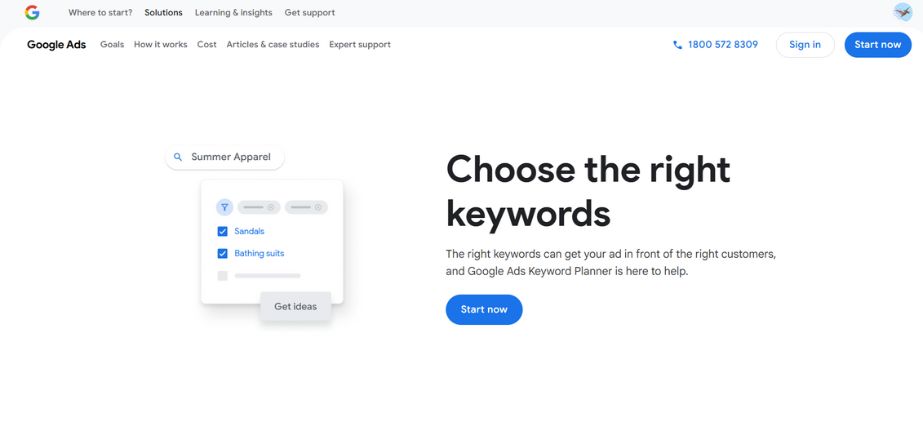
Rating: 4.0/5
Website: https://ads.google.com/home/tools/keyword-planner
Best Use Cases: Google Ads campaigns, PPC keyword research, search volume validation
The Google Keyword Planner is an officially approved keyword research tool of the Google Advertising platform, which is undertaken to formulate strategies that would assist in making their PPC campaigns productive. Through the Google advertising platform, the platform gives correct search volume, competition and estimate of the bid. Among various keyword research tools, it remains one of the most reliable for PPC planning.
Although it is mainly catered to paid advertising, it is used by many SEO practitioners to confirm keyword potential and learn about search demand. The connection between the tool and Google Ads makes it easy to create any campaign and optimize it according to the results of the keyword research.
Its predictive capabilities will allow the paid search professionals to foresee campaign efficacy and budgetary needs, and it’s invaluable to companies with advertising spend in mind. When paired with keyword research tools, it can further refine targeting and improve overall performance.Its predictive capabilities will allow the paid search professionals to foresee campaign efficacy and budgetary needs, and it’s invaluable to companies with advertising spend in mind.
Key Features:
- Official Google data
- Bid estimation tools
- Campaign forecasting features
- Competition level insights
- Integration with ads
Pros:
- Highly accurate data
- Free Google access
- PPC campaign integration
Cons:
- Advertising-focused design approach
- Limited SEO features
- Requires a Google account
Pricing: Free
9. AnswerThePublic – Best for Question-Based Keywords
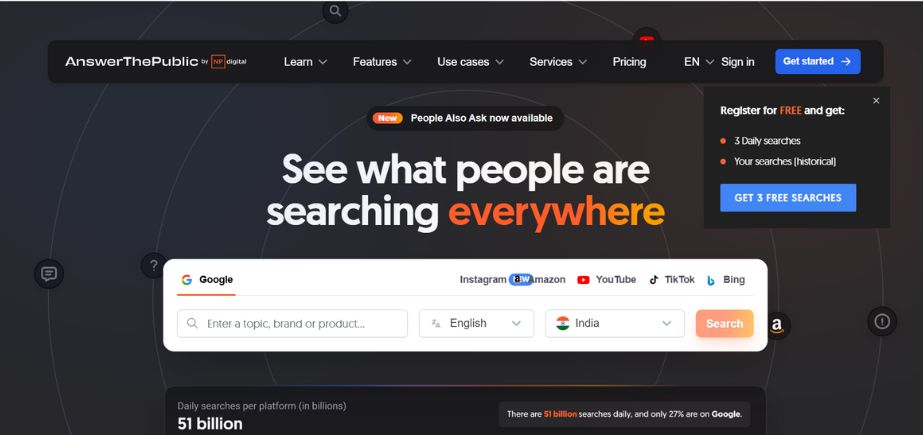
Rating: 4.1/5
Website: https://answerthepublic.com
Best Use Cases: Content ideation, question-based keywords, user intent research
AnswerThePublic makes keyword research visual, displaying its results in easy-to-understand, circular graphics that show visitor questions and search behaviour. This new method enables content creators to have a clear idea of which questions people raise concerning a particular subject. The tool produces hundreds of keyword-based questions, comparisons, and prepositions that are frequently overlooked by traditional tools.
Such kind of insight is invaluable when it comes to the development of FAQ pages, suggestions of posts to write in a blog, and rich content that can meet the actual user requirements. The visualization allows quick detection of content gaps and the ability to create editorial calendars around the real search behavior phenomenon, rather than what we might think are the areas of user interest. When combined with keyword research tools, these insights become even more precise and actionable.
Key Features:
- Visual keyword mapping
- Question-based research approach
- User intent analysis
- Content ideation support
- Multiple query types
Pros:
- Unique visual approach
- Question-focused insights
- Content planning assistance
Cons:
- Limited search volumes
- Basic metric data
- Expensive premium plans
Pricing: US$5/month
10. SpyFu – Best for Competitor Analysis
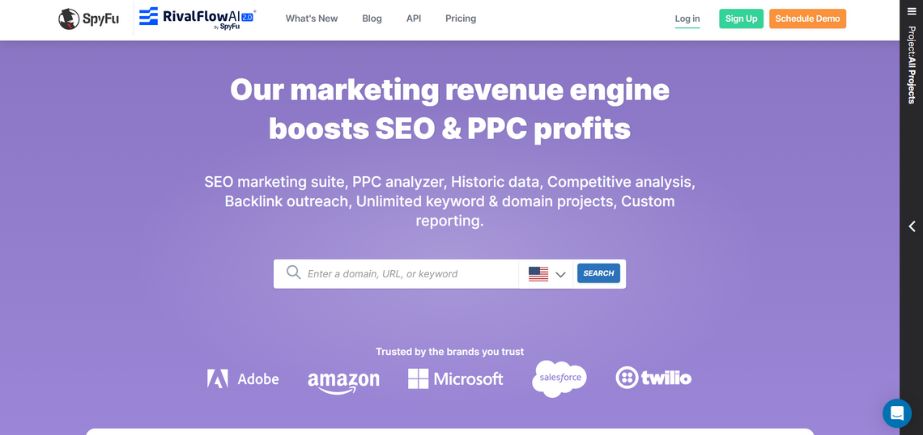
Rating: 4.2/5
Website: https://spyfu.com
Best Use Cases: Competitor keyword analysis, PPC intelligence, historical data research
SpyFu is a competitive intelligence tool designed to give unmatched insights into the keyword strategies of competitors and how much they are spending on advertising. This platform is perfect for showing the keywords that lead to the competitors’ websites and the amount they spend on paid advertisement campaigns. The historical data feature on the tool gives one an opportunity to monitor the performance of competitors over time in order to see what has worked to merit its modelling.
The power of SpyFu is that it can really reveal the distinction between an organic and paid keyword approach, allowing organizations a broad view of the competitor’s digital marketing campaign. The in-depth practice enables companies to ensure that they match the opportunities available in the market, as well as stand out among their competitors strategically. As with other keyword research tools, SpyFu equips businesses with valuable data to strengthen their SEO strategy.
Key Features:
- Competitor keyword tracking
- Historical performance data
- PPC spending analysis
- Organic ranking insights
- Strategic planning tools
Pros:
- Detailed competitor insights
- Historical data access
- Combined SEO/PPC view
Cons:
- Limited organic focus
- Higher pricing tiers
- Complex data interpretation
Pricing: $33 a Month
How to Choose the Right Keyword Research Tools
Selecting a keyword research tool should take into account all your needs and the budget constraints and the scope of your technical expertise. Right choice will be required to depend on many factors that will fit your business planning and marketing strategy.
- Budget: Consider the finances you have at hand and select tools that will provide maximum value by balancing the features and cost-effectiveness to provide sustainable long-term utility. This approach is equally important when evaluating keyword research tools to ensure lasting ROI.
- Features: Assess what features are most relevant to your strategy, where to find simple keyword data functions, and complex features such as competitor analysis and content optimization functions.
- Expertise: Tie tool sophistication to your team’s baseline of skill, where you know you can make the platform work, but won’t overload less skilled users with complexity they do not need. The same applies when selecting keyword research tools, as choosing the right level of functionality ensures efficiency without confusion.
- Scale: Consider the scale of your business and its projected growth and ensure that the keyword research tools you select will be capable of handling expected future increases in demand and the concomitant expansion of marketing staff over time.
- Integration: A platform should be selected which is compatible with your existing marketing stack and should allow data transfer and workflow between tools and platforms to be easily flowed and utilized.
Conclusion
Learning search keywords research tools are instrumental in your digital marketing success, as it is the backbone of proper search engine optimization and content development. The topics of the ten platforms covered are a mixture of different ways of approaching keyword analysis, such as enterprise covers, enterprise-wide approaches, and small business budget solutions.
By using any of Ahrefs due to the large amount of information, Google Trends to analyze trends, or Ubersuggest in combination with the affordable research cost, you will gain access to different strengths in your marketing toolbox.
The trick is in choosing the keyword research tools that consider your demands, budget, and the level of your experience. When you make use of these powerful platforms effectively, you will be able to discover excellent opportunities, crush the competition, and generate significant organic traffic, which translates into business growth and success.
Frequently Asked Questions
Q: What are the top keyword research tools we can use that are free?
A: Google Trends, Google Search Console, and Google Keyword Planner are free tools to provide a great source of keyword data and information. These platforms also rank among the most effective keyword research tools for SEO.
Q: How frequently do I need to do keyword research for my site?
A: Keyword research should be conducted every month with a substantial review each quarter to determine possible new opportunities and trends.
Q. Is the keyword research sure to achieve better search ranking?
A: Although they give insightful information, these tools are only useful in ranking when it comes to the quality of the content, technical optimization, and general/holistic implementation of SEO strategy.
Q: What will be the best keyword research tool for local businesses?
A: Google Search Console displays location-specific performance data; Google Keyword Planner and Ubersuggest will suggest good local keyword data. These platforms are among the most widely used keyword research tools for local SEO.
Q: What are the requirements to use several keyword research tools to optimize SEO?
A: The Majority of businesses are thriving by just having a key tool complemented with free tools such as Google Trends to create an inclusive keyword strategy.
 Get 50% off on Vault theme. Limited time offer!
Get 50% off on Vault theme. Limited time offer!